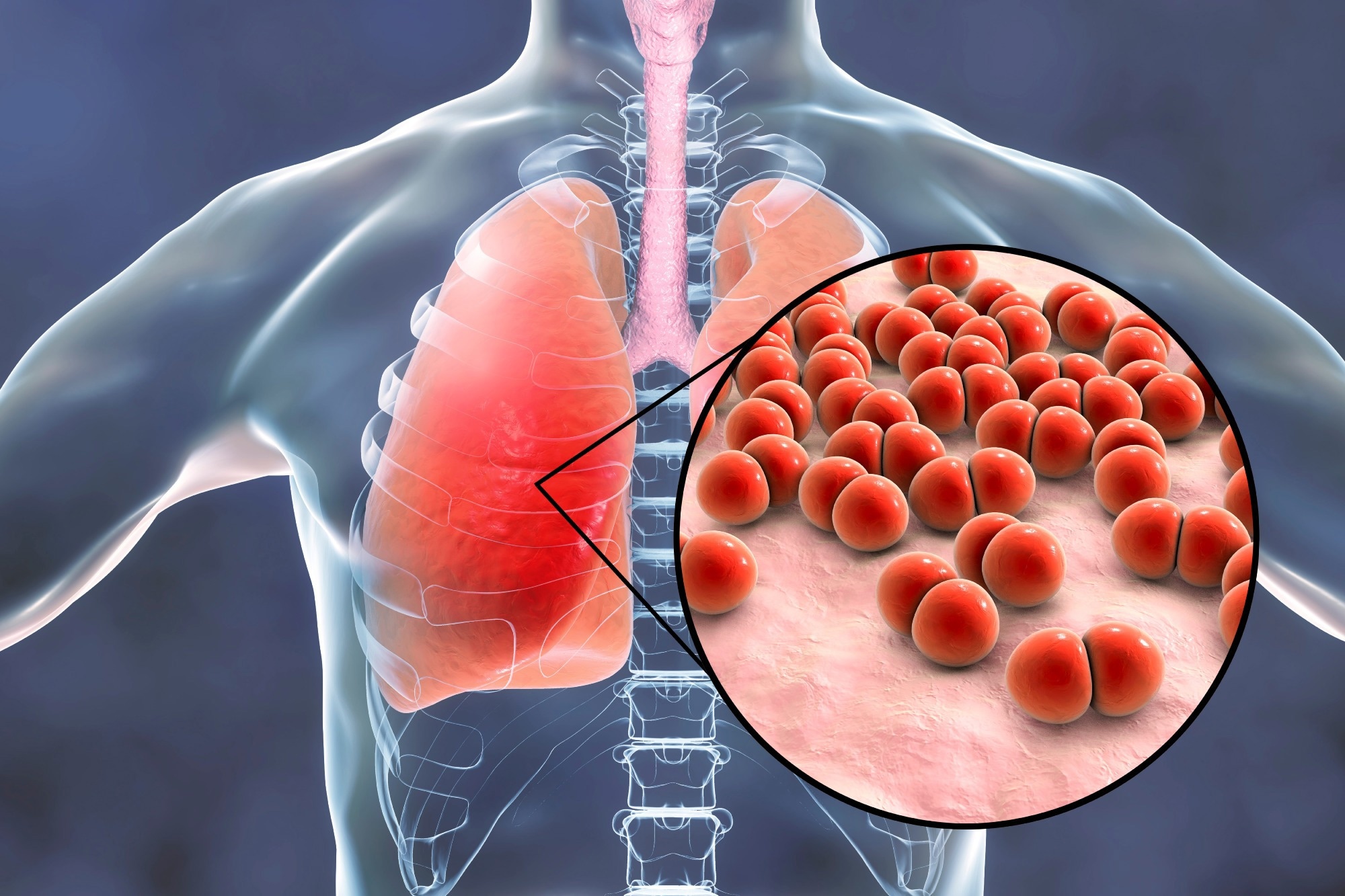In a recent study published in the Journal of Experimental Medicine, researchers identified that individuals with a deficiency of myeloid differentiation primary response 88 (MyD88) and interleukin-1 receptor-associated kinase 4 (IRAK-4) due to an autosomal recessive condition were highly susceptible to developing hypoxemic coronavirus disease 2019 (COVID-19) pneumonia when infected with severe acute respiratory syndrome coronavirus 2 (SARS-CoV-2).
Background
 Study: Humans with inherited MyD88 and IRAK-4 deficiencies are predisposed to hypoxemic COVID-19 pneumonia. Image Credit: Kateryna Kon/Shutterstock
Study: Humans with inherited MyD88 and IRAK-4 deficiencies are predisposed to hypoxemic COVID-19 pneumonia. Image Credit: Kateryna Kon/Shutterstock
The severity of COVID-19 varies according to factors such as age and comorbidities. While most young adults and children experience asymptomatic SARS-CoV-2 infections or develop mild symptoms associated with upper respiratory tract infections, less than 10% of COVID-19 patients develop hypoxemic COVID-19 pneumonia, which is severe in 7% of the patients with a 3% mortality rate.
Studies have found that critical COVID-19 pneumonia was linked to errors in toll-like receptor 3 (TLR3) and TLR7-dependant type I interferon (IFN) immunity and autosomal recessive deficiency of interferon regulatory factor 7 (IRS7) and interferon alpha and beta receptor subunit 1 (IFNAR1). X-linked recessive deficiency of TLR-7 was also linked to hypoxemic COVID-19 pneumonia in a small percentage of men below 60 years of age and boys below the age of 16.
About the study
In the present study, as part of an international collaboration, the researchers analyzed data from 22 unvaccinated COVID-19 patients with inherited MyD88 and IRAK-4 deficiencies, spanning 17 kindreds across various countries, including Spain, the United States, Germany, Belgium, Canada, Italy, Morocco, and Switzerland. SARS-CoV-2 infections were confirmed based on real-time polymerase chain reaction (RT-PCR) tests or antigen tests. The patients were between the ages of two months and 24 years, and four were female.
Data on chest imaging, clinical outcomes, family history, and other risk factors were obtained through patient surveys. Culture results and chest x-rays were recorded in case of concomitant infections. The severities of SARS-CoV-2 infections were classified as mild with non-confirmed pneumonia if the patient was asymptomatic or had only upper respiratory tract infection, moderate with non-hypoxemic pneumonia if no oxygen therapy was required, severe if they experienced hypoxemic pneumonia requiring less than six liters of oxygen, and critical in cases of hypoxemic pneumonia requiring more than six liters of oxygen, intubation, or extracorporeal membrane oxygenation.
Serum and plasma samples were analyzed for auto-antibodies that neutralized high or low physiological doses of IFN-α2, IFN-β, and IFN-ώ. Next-generation sequencing of genomic deoxyribonucleic acid (DNA) and ribonucleic acid (RNA) sequence analysis was performed to screen for other immunological or genetic disorders that could cause hypoxemic COVID-19 pneumonia. Patients were screened for predicted loss-of-function mutations in the 478 genes that were known to be linked to autosomal recessive, autosomal dominant, or X-linked recessive inborn errors of immunity. A transcriptome analysis was also conducted to study the genes involved in the inflammatory responses during infection.
Results
The results reported that unvaccinated individuals with autosomal or X-linked deficiencies IRAK-4 and MyD88 were at a greater risk of developing hypoxemic pneumonia during SARS-CoV-2 infections than individuals of the same age without these genetic deficiencies. These deficiencies were identified as recessive and not co-dominant since heterozygous relatives were not at the same risk of developing hypoxemic pneumonia.
The researchers believe that the IRAK-4 and MyD88 deficiencies impair the TLR-7-mediated ability of plasmacytoid dendritic cells to sense SARS-CoV-2, demonstrated in another ex vivo study. Since the induction of type 1 IFNs through TLR-3 was unaffected in individuals deficient in IRAK-4 and MyD88, it can be concluded that immune responses in the upper respiratory tract against SARS-CoV-2 were highly dependent on the induction of type I IFNs by plasmacytoid dendritic cells through TLR-7.
For individuals with autosomal and X-linked recessive deficiencies of IRAK-4 and MyD88, the risk of mechanical ventilation due to critical hypoxemic pneumonia is also greater than that in age-matched cohorts of the general population, and the risk of hypoxemic pneumonia increases with age. Studies have also reported human herpesvirus 6 infections among patients deficient in IRAK-4 and MyD88.
Conclusions
The findings indicated that individuals deficient in IRAK-4 and MyD88 due to autosomal or X-linked recessive gene variants were highly susceptible to developing hypoxemic pneumonia during SARS-CoV-2 infections. Evidence from other studies on human herpesvirus 6 infections and influenza pneumonia among IRAK-4 and MyD88 deficient individuals suggested they may also be at a higher risk of other viral infections.
Journal reference:
- García-García, A., Rebeca, D., Flores, C., Rinchai, D., Solé-Violán, J., Deyà-Martínez, À., García-Solis, B., Lorenzo-Salazar, José M, Hernández-Brito, E., Lanz, A.-L., Moens, L., Bucciol, G., Almuqamam, M., Domachowske, J. B., Colino, E., Santos-Perez, J. L., Marco, F. M., Pignata, C., Bousfiha, A., & Turvey, S. E. (2023). Humans with inherited MyD88 and IRAK-4 deficiencies are predisposed to hypoxemic COVID-19 pneumonia. Journal of Experimental Medicine. doi: https://doi.org/10.1084/jem.20220170 https://rupress.org/jem/article/220/5/e20220170/213920/Humans-with-inherited-MyD88-and-IRAK-4?searchresult=1